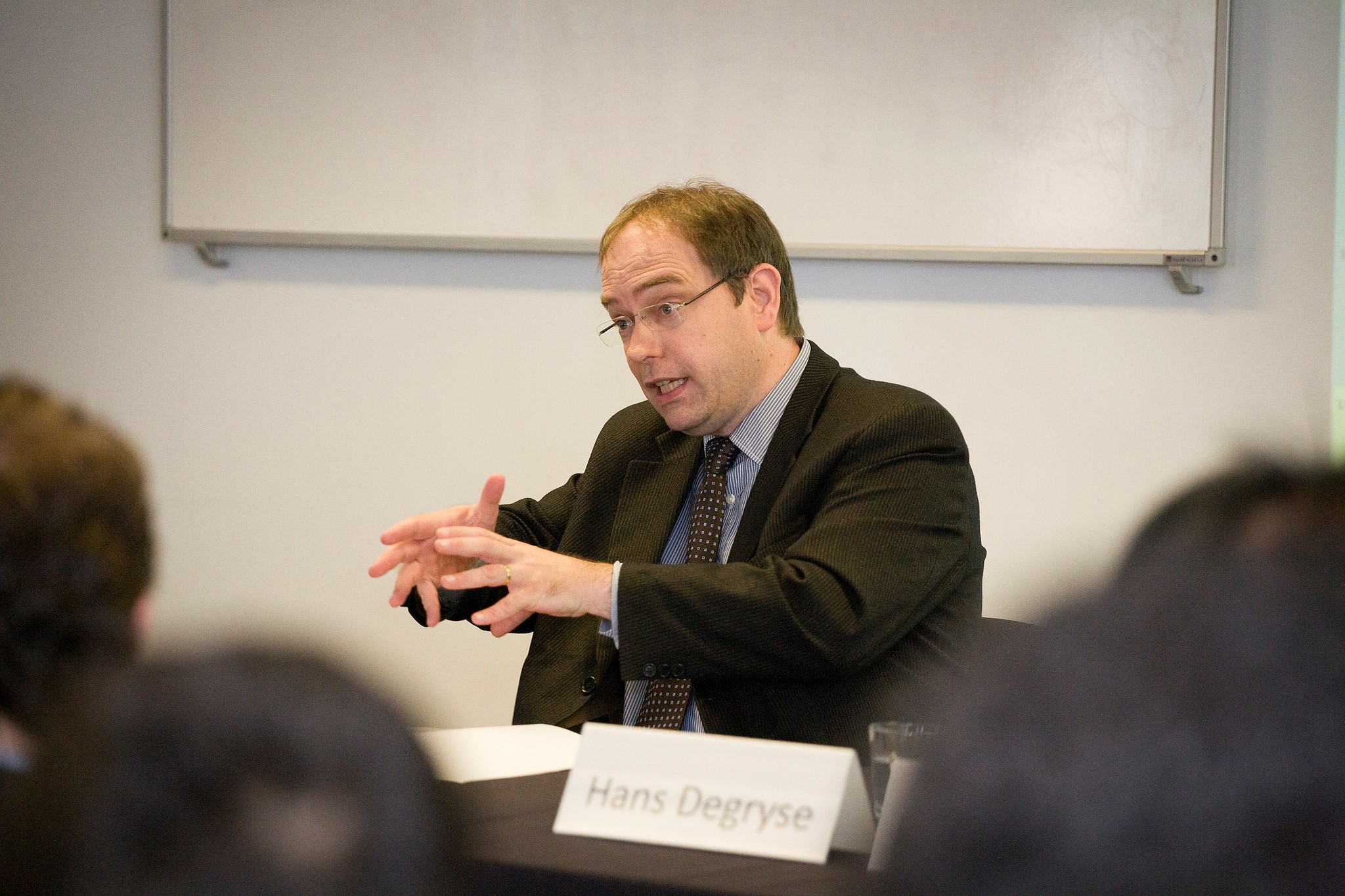Financial System Adaptability and Resilience
Financial systems differ across countries and tend to evolve slowly over time. Their structure is typically stable, but their resilience is often tested. A well-functioning financial system is vital for economic development, as it ensures that capital flows to the most productive and valuable investment opportunities. However, systemic vulnerabilities can have far-reaching consequences. For example, the 2007–08 global financial crisis emerged from within the financial sector itself when complex financial products fuelled a credit bubble in the U.S. housing market, threatening global economic stability when the bubble burst. That event led to extensive policy and regulatory reforms to strengthen financial system resilience.
Financial systems continue to face significant challenges. External shocks like the COVID-19 pandemic, the climate crisis, the green economic transition, and the energy crisis driven by geopolitical conflict all underscore the importance of financial systems that can absorb shocks and adapt to changing economic conditions. Motivated by these pressing issues, we investigate how financial systems respond to crises, which institutions and policies improve resilience, and the role of finance systems' setup in broader economic transformations. We use diverse data sources, including bank and firm-level data, regulatory reports, and house price and election data, to inform evidence-based policy.
Research Cluster
Financial Resilience and RegulationYour contact

- Department Financial Markets
EXTERNAL FUNDING
08.2022 ‐ 07.2025
OVERHANG: Debt overhang and green investments - the role of banks in climate-friendly management of emission-intensive fixed assets
The collaborative project “Debt Overhang and Green Investments” (OVERHANG) aims to investigate the role of banks in the climate-friendly management of emission-intensive fixed assets. This will identify policy-relevant insights on financial regulation, government-controlled lending and financial stability, as well as raise awareness among indebted stakeholders.
01.2015 ‐ 12.2019
Interactions between Bank-specific Risk and Macroeconomic Performance
07.2016 ‐ 12.2018
Relationship Lenders and Unorthodox Monetary Policy: Investment, Employment, and Resource Reallocation Effects
Leibniz Association
We combine a number of unique and proprietary data sources to measure the impact of relationship lenders and unconventional monetary policy during and after the European sovereign debt crisis on the real economy. Establishing systematic links between different research data centers (Forschungsdatenzentren, FDZ) and central banks with detailed micro-level information on both financial and real activity is the stand-alone proposition of our proposal. The main objective is to permit the identification of causal effects, or their absence, regarding which policies were conducive to mitigate financial shocks and stimulate real economic activities, such as employment, investment, or the closure of plants.
Refereed Publications
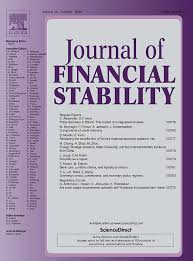
Bank Market Power, Factor Reallocation, and Aggregate Growth
in: Journal of Financial Stability, 2015
Abstract
Using a unique firm-level sample of approximately 700,000 firm-year observations of German small and medium-sized enterprises (SMEs), this study seeks to identify the effect of bank market power on aggregate growth components. We test for a pre-crisis sample whether bank market power spurs or hinders the reallocation of resources across informationally opaque firms. Identification relies on the dependence on external finance in each industry and the regional demarcation of regional banking markets in Germany. The results show that bank markups spur aggregate SME growth, primarily through technical change and the reallocation of resources. Banks seem to need sufficient markups to generate the necessary private information to allocate financial funds efficiently.
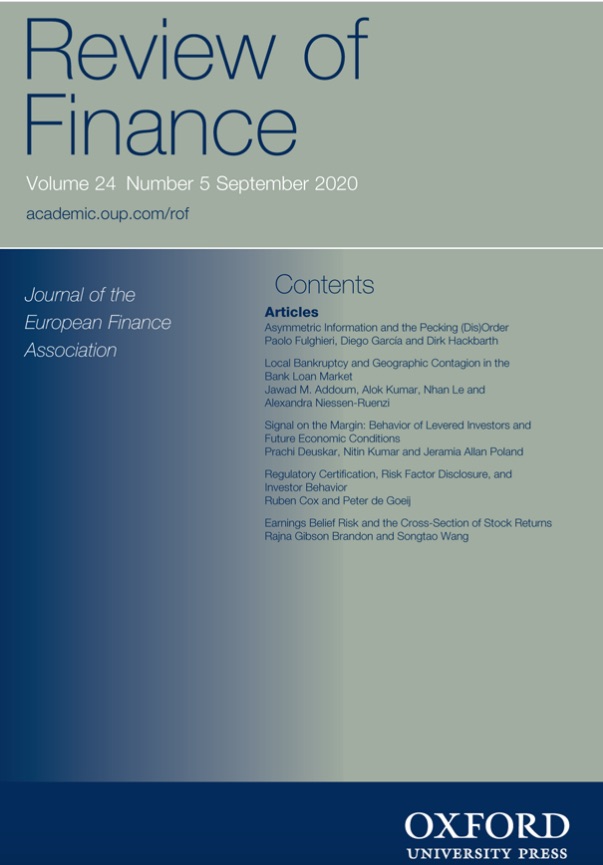
The Impact of Dark Trading and Visible Fragmentation on Market Quality
in: Review of Finance, No. 4, 2015
Abstract
Two important characteristics of current equity markets are the large number of competing trading venues with publicly displayed order books and the substantial fraction of dark trading, which takes place outside such visible order books. This article evaluates the impact on liquidity of dark trading and fragmentation in visible order books. Dark trading has a detrimental effect on liquidity. Visible fragmentation improves liquidity aggregated over all visible trading venues but lowers liquidity at the traditional market, meaning that the benefits of fragmentation are not enjoyed by investors who choose to send orders only to the traditional market.
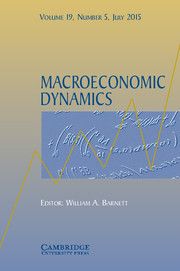
Labor Market Volatility, Skills, and Financial Globalization
in: Macroeconomic Dynamics, No. 5, 2014
Abstract
We analyze the impact of financial globalization on volatilities of hours worked and wages of high-skilled and low-skilled workers. Using cross-country, industry-level data for the years 1970–2004, we establish stylized facts that document how volatilities of hours worked and wages of workers with different skill levels have changed over time. We then document that the volatility of hours worked by low-skilled workers has increased the most in response to the increase in financial globalization. We develop a dynamic stochastic general equilibrium model of a small open economy that is consistent with the empirical results. The model predicts that greater financial globalization increases the volatility of hours worked, and this effect is strongest for low-skilled workers.
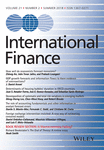
Do Better Capitalized Banks Lend Less? Long-run Panel Evidence from Germany
in: International Finance, No. 1, 2014
Abstract
Higher capital features prominently in proposals for regulatory reform. But how does increased bank capital affect business loans? The real costs of increased bank capital in terms of reduced loans are widely believed to be substantial. But the negative real-sector implications need not be severe. In this paper, we take a long-run perspective by analysing the link between the capitalization of the banking sector and bank loans using panel cointegration models. We study the evolution of the German economy for the past 44 years. Higher bank capital tends to be associated with higher business loan volume, and we find no evidence for a negative effect. This result holds both for pooled regressions as well as for the individual banking groups in Germany.
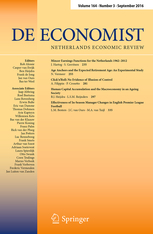
An Empirical Analysis of Legal Insider Trading in The Netherlands
in: De Economist, No. 1, 2014
Abstract
In this paper, we employ a registry of legal insider trading for Dutch listed firms to investigate the information content of trades by corporate insiders. Using a standard event-study methodology, we examine short-term stock price behavior around trades. We find that purchases are followed by economically large abnormal returns. This result is strongest for purchases by top executives and for small market capitalization firms, which is consistent with the hypothesis that legal insider trading is an important channel through which information flows to the market. We analyze also the impact of the implementation of the Market Abuse Directive (European Union Directive 2003/6/EC), which strengthens the existing regulation in the Netherlands. We show that the new regulation reduced the information content of sales by top executives.
Working Papers
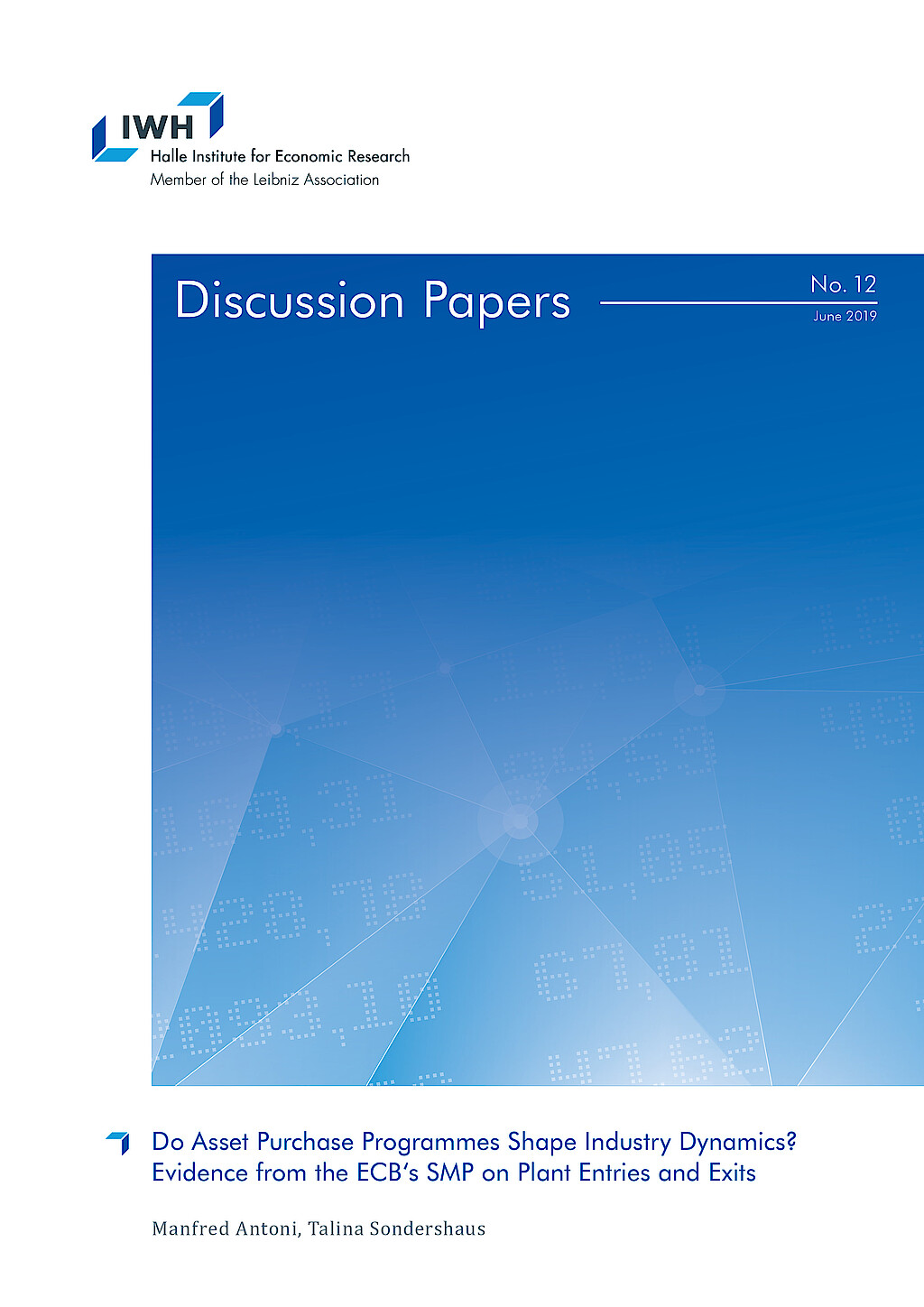
Do Asset Purchase Programmes Shape Industry Dynamics? Evidence from the ECB's SMP on Plant Entries and Exits
in: IWH Discussion Papers, No. 12, 2019
Abstract
Asset purchase programmes (APPs) may insulate banks from having to terminate relationships with unproductive customers. Using administrative plant and bank data, we test whether APPs impinge on industry dynamics in terms of plant entry and exit. Plants in Germany connected to banks with access to an APP are approximately 20% less likely to exit. In particular, unproductive plants connected to weak banks with APP access are less likely to close. Aggregate entry and exit rates in regional markets with high APP exposures are also lower. Thus, APPs seem to subdue Schumpeterian cleansing mechanisms, which may hamper factor reallocation and aggregate productivity growth.
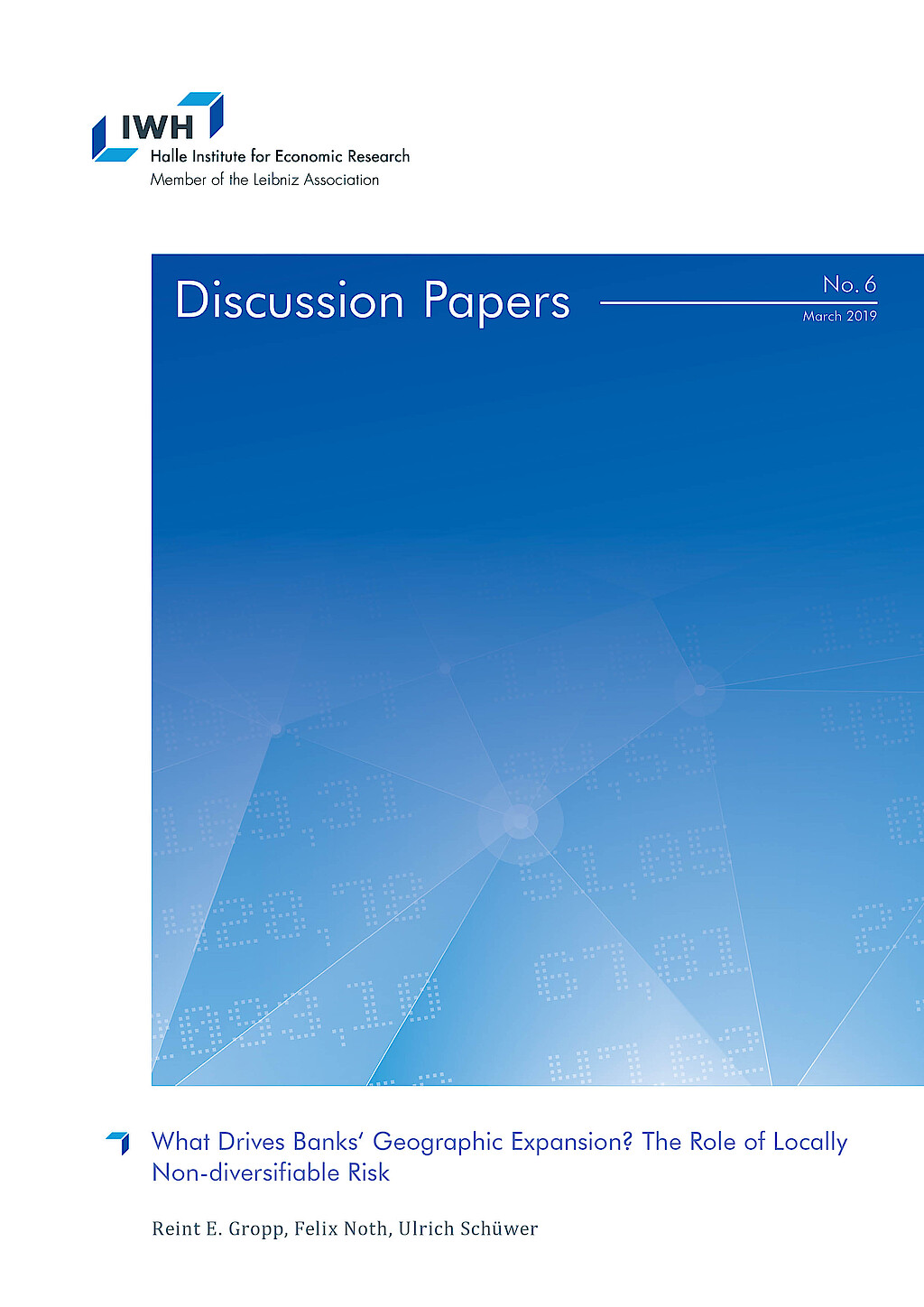
What Drives Banks‘ Geographic Expansion? The Role of Locally Non-diversifiable Risk
in: IWH Discussion Papers, No. 6, 2019
Abstract
We show that banks that are facing relatively high locally non-diversifiable risks in their home region expand more across states than banks that do not face such risks following branching deregulation in the 1990s and 2000s. These banks with high locally non-diversifiable risks also benefit relatively more from deregulation in terms of higher bank stability. Further, these banks expand more into counties where risks are relatively high and positively correlated with risks in their home region, suggesting that they do not only diversify but also build on their expertise in local risks when they expand into new regions.
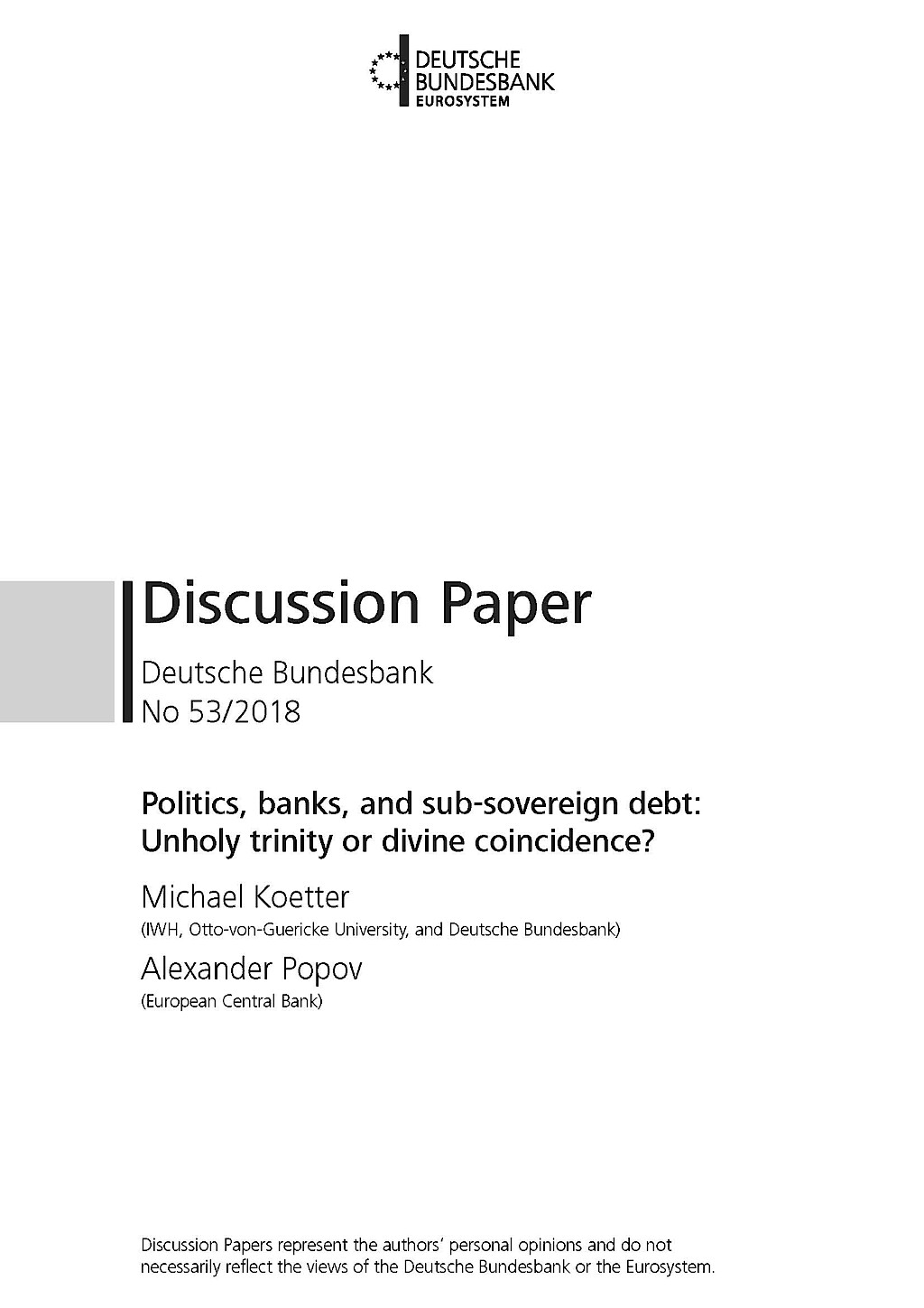
Politics, Banks, and Sub-sovereign Debt: Unholy Trinity or Divine Coincidence?
in: Deutsche Bundesbank Discussion Paper, No. 53, 2018
Abstract
We exploit election-driven turnover in State and local governments in Germany to study how banks adjust their securities portfolios in response to the loss of political connections. We find that local savings banks, which are owned by their host county and supervised by local politicians, increase significantly their holdings of home-State sovereign bonds when the local government and the State government are dominated by different political parties. Banks' holdings of other securities, like federal bonds, bonds issued by other States, or stocks, are not affected by election outcomes. We argue that banks use sub-sovereign bond purchases to gain access to politically distant government authorities.
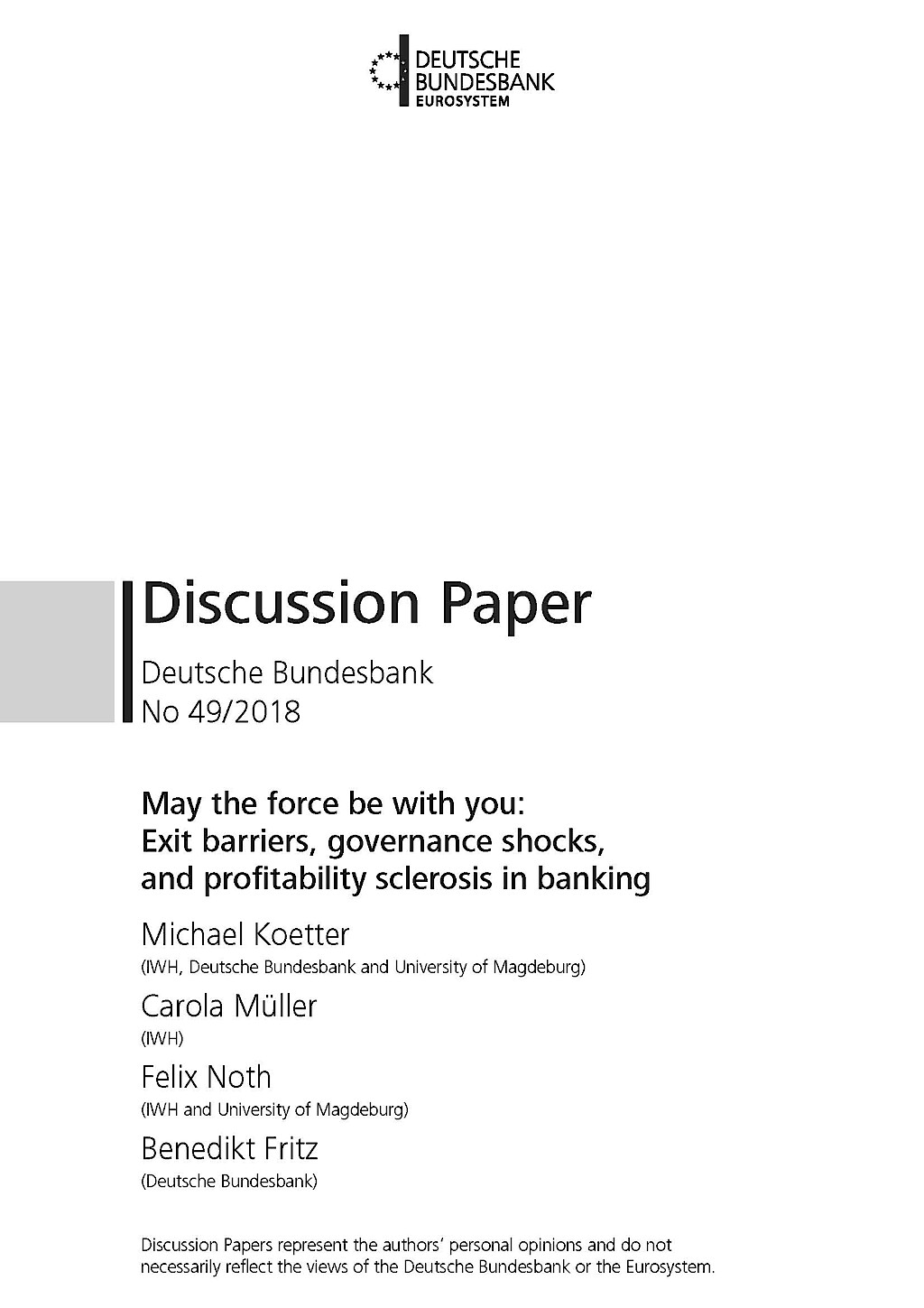
May the Force Be with You: Exit Barriers, Governance Shocks, and Profitability Sclerosis in Banking
in: Deutsche Bundesbank Discussion Paper, No. 49, 2018
Abstract
We test whether limited market discipline imposes exit barriers and poor profitability in banking. We exploit an exogenous shock to the governance of government-owned banks: the unification of counties. County mergers lead to enforced government-owned bank mergers. We compare forced to voluntary bank exits and show that the former cause better bank profitability and efficiency at the expense of riskier financial profiles. Regarding real effects, firms exposed to forced bank mergers borrow more at lower cost, increase investment, and exhibit higher employment. Thus, reduced exit frictions in banking seem to unleash the economic potential of both banks and firms.
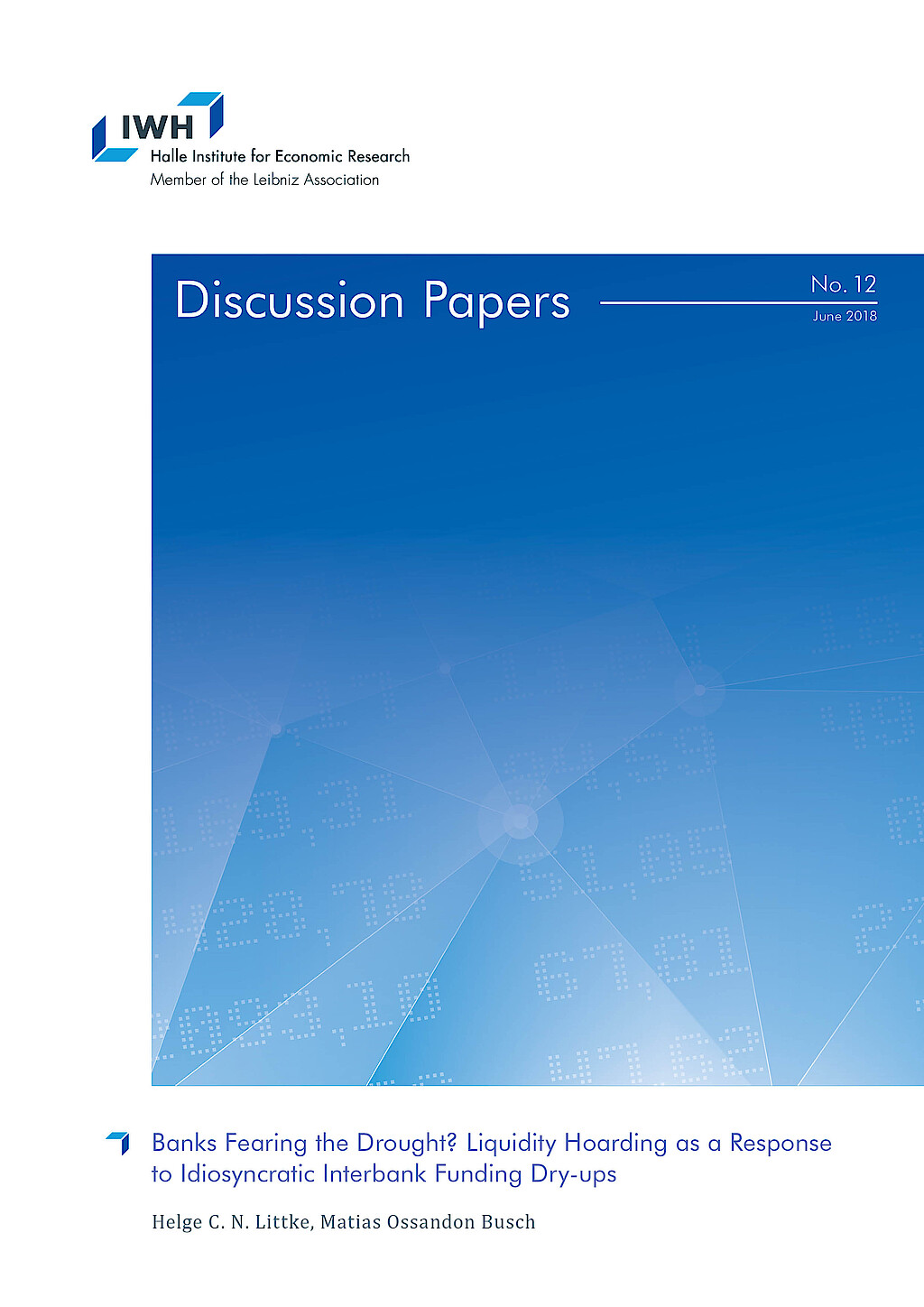
Banks Fearing the Drought? Liquidity Hoarding as a Response to Idiosyncratic Interbank Funding Dry-ups
in: IWH Discussion Papers, No. 12, 2018
Abstract
Since the global financial crisis, economic literature has highlighted banks’ inclination to bolster up their liquid asset positions once the aggregate interbank funding market experiences a dry-up. To this regard, we show that liquidity hoarding and its detrimental effects on credit can also be triggered by idiosyncratic, i.e. bankspecific, interbank funding shocks with implications for monetary policy. Combining a unique data set of the Brazilian banking sector with a novel identification strategy enables us to overcome previous limitations for studying this phenomenon as a bankspecific event. This strategy further helps us to analyse how disruptions in the bank headquarters’ interbank market can lead to liquidity and lending adjustments at the regional bank branch level. From the perspective of the policy maker, understanding this market-to-market spillover effect is important as local bank branch markets are characterised by market concentration and relationship lending.



